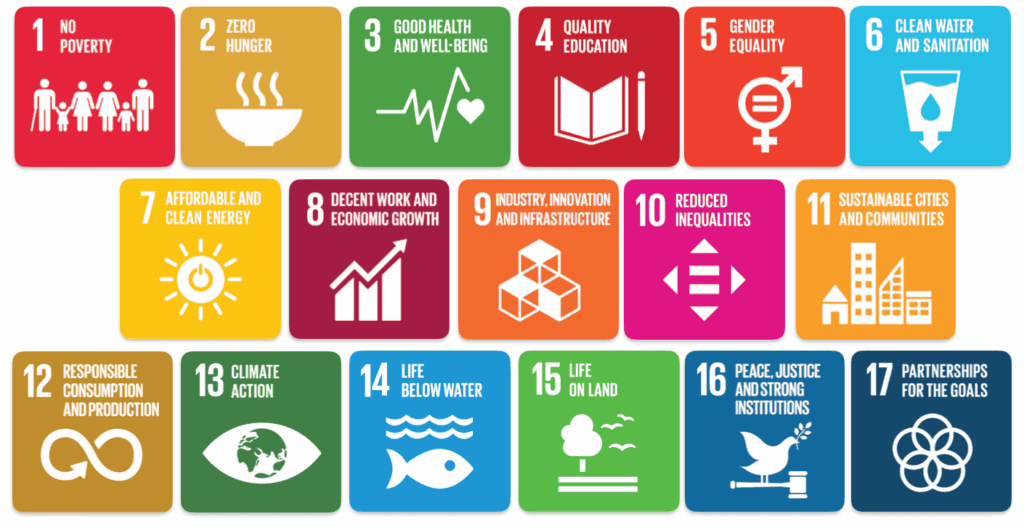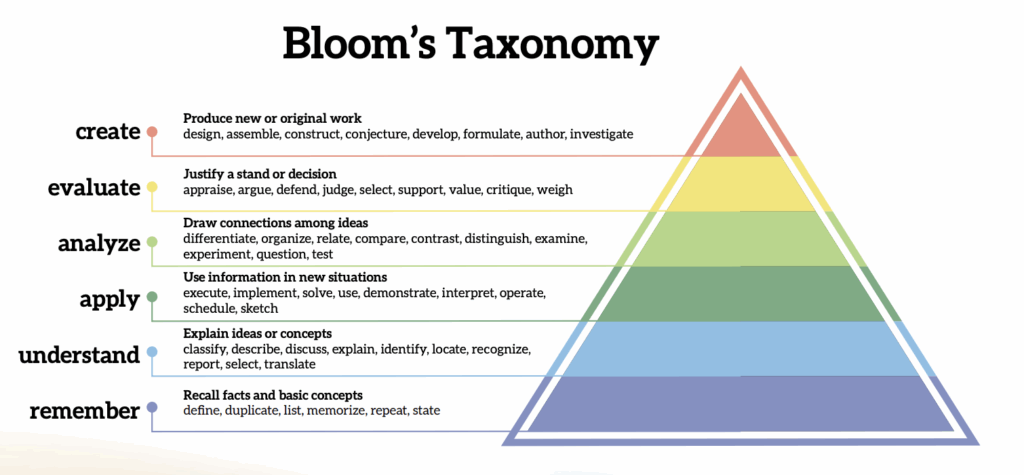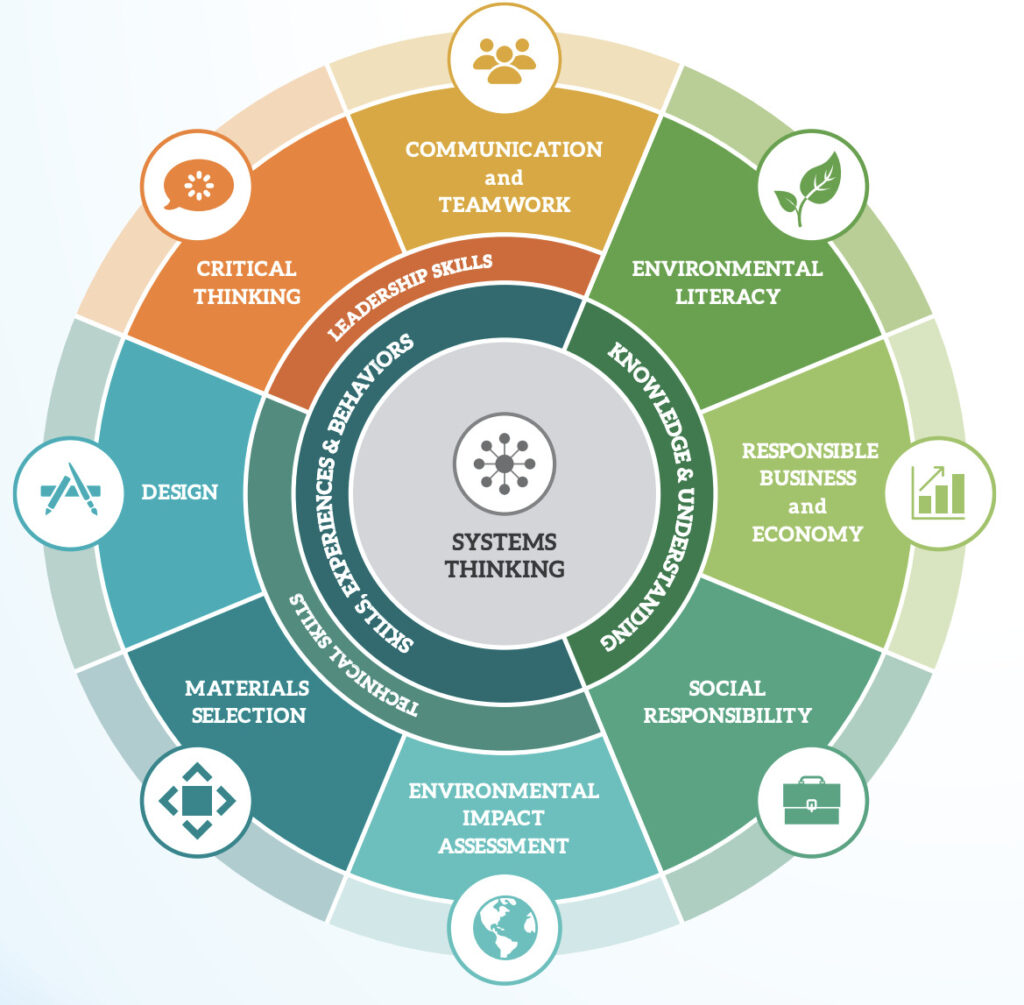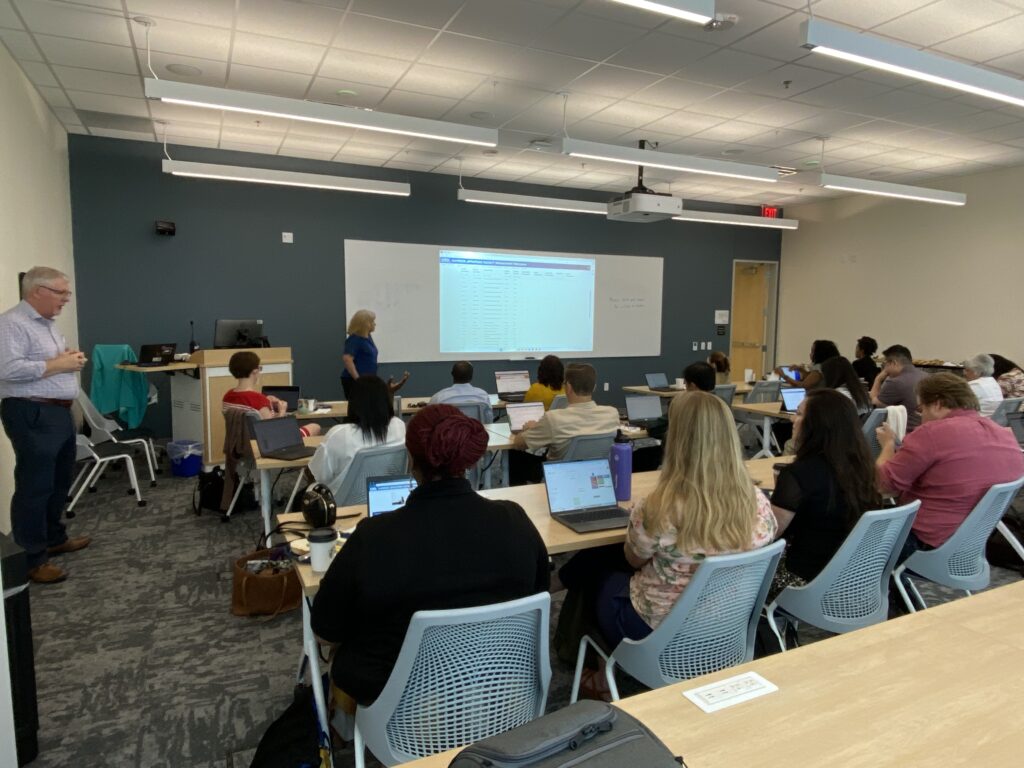Engineering for One Planet Implementation at UTA
Why Choose Engineering for One Planet?
Created by the Lemelson Foundation in 2020, the Engineering for One Planet (EOP) framework prepares future engineers to address current and future global sustainability challenges. Using systems thinking, the EOP framework embeds principles of environmental responsibility, leadership skills, and ethical business practices into core engineering education. This integration not only equips engineers to meet industry demands for sustainable practices but also empowers them to contribute meaningfully to global efforts toward resilience, equity, and long-term success. The EOP framework is complete with guidelines, activities for students, and curriculum guides that are available free of charge at engineeringforoneplanet.org

How is Engineering for One Planet Aligned With Sustainability?
The EOP framework and instructional aides are closely aligned with the UN-17 Sustainability Development Goals (SDGs). These goals focus on creating total human health worldwide in conjunction with caring for the longevity of our planet. The goals also highlight the importance of community, business, and government in reaching a world that is more responsive to the needs of all of its inhabitants. EOP student learning outcomes within the framework are mapped to corresponding SDGs where they apply. The full framework and learning goals can be found here: EOP Framework 2022.
How is the EOP Framework Aligned with Student Learning Outcomes?
The EOP framework has been developed with successful student learning in mind. Using research based instructional practices and scaffolded learning outcomes, EOP provides a roadmap for engineering curriculum to support engineering students at all stages of their academic career that aligns with national standards for engineering education set by ABET and the Engineering Accreditation Commision (EAC). The EOP has also been adapted to map to the United Kingdom’s Accreditation of Higher Education Programmes (AHEP4) learning outcomes, aiding in the implementation of sustainable engineering practices worldwide.

How is UTA Institutionalizing the EOP Framework?
Our institutionalization plan at the University of Texas at Arlington (UTA) is to create a pathway for faculty to integrate sustainability into their courses via the EOP framework’s learning objectives. Anticipated grant deliverables include projects, reports, and presentations on processes that provide faculty training on updating course syllabi with new student learning outcomes (SLOs) that incorporate sustainability content, meaningful activities, and assessments; designating and cataloguing sustainability courses, and; developing a comprehensive marketing approach to encourage faculty participation and student enrollment. The proposed processes will leverage existing resources at UTA and existing sustainability programs, such as the Sustainable Engineering minor (highlighted by the EOP framework’s literature review as an “exemplar integrated program”).

